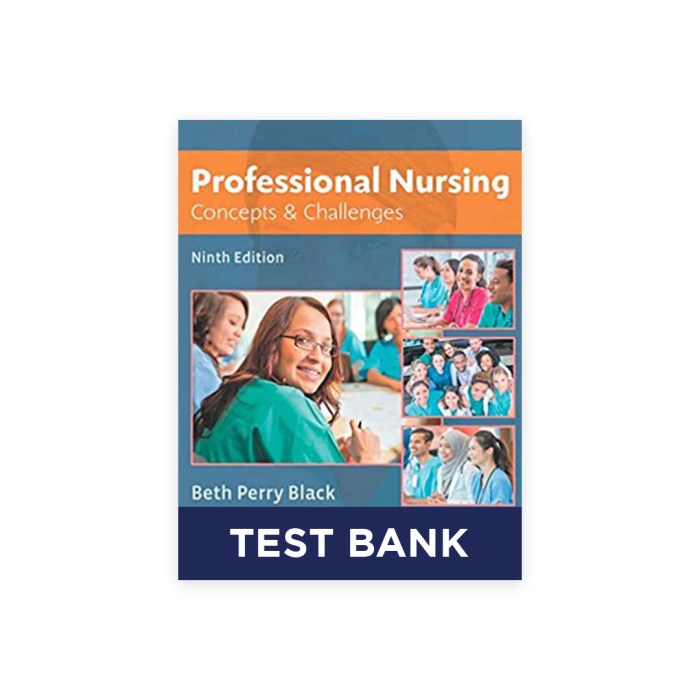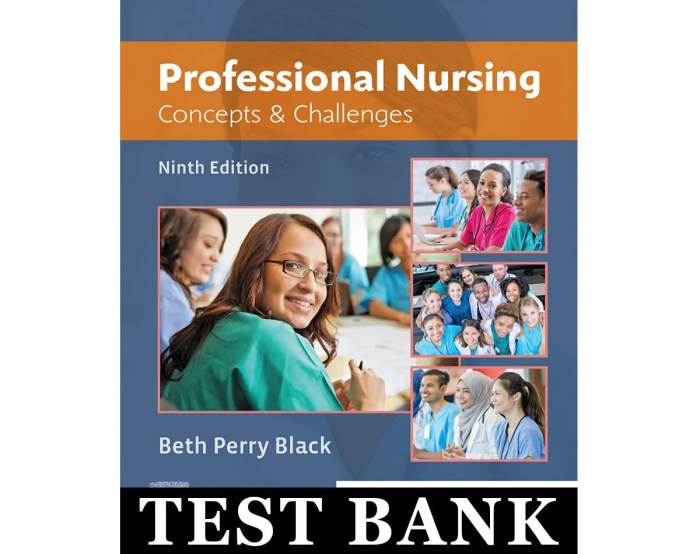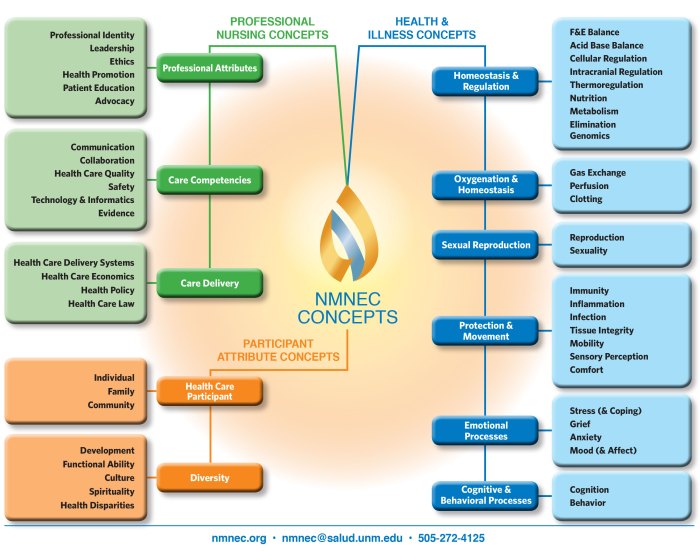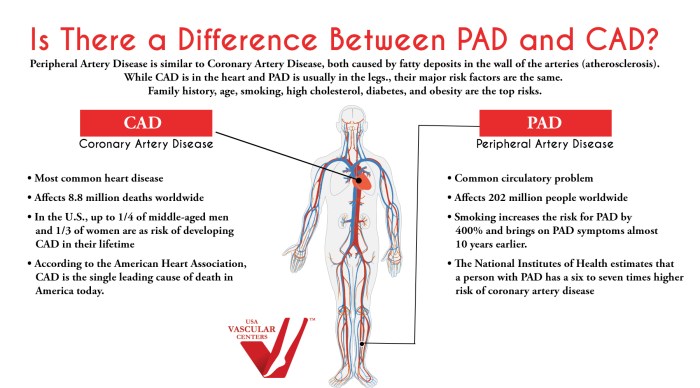Professional nursing concepts and challenges pdf, a comprehensive guide, delves into the fundamental principles, values, roles, and responsibilities of professional nurses in diverse healthcare settings. It explores the significance of evidence-based practice and patient-centered care, while also addressing the challenges faced by nurses today, such as workload, staffing shortages, and burnout.
This guide provides valuable insights into ethical and legal considerations, interdisciplinary collaboration, and the importance of continuing education and professional development for nurses.
This guide serves as an indispensable resource for nurses seeking to enhance their knowledge, skills, and practice. It offers practical strategies and solutions to address the challenges faced by nurses, ultimately leading to improved patient outcomes and the advancement of the nursing profession.
Professional Nursing Concepts
Professional nursing is guided by fundamental principles and values that shape the practice of nurses in various healthcare settings. These principles include patient-centered care, evidence-based practice, ethical decision-making, and a commitment to lifelong learning.
Roles and Responsibilities of Professional Nurses
Professional nurses play diverse roles in healthcare, including providing direct patient care, managing patient care plans, educating patients and families, and collaborating with other healthcare professionals. They are responsible for assessing patients’ health needs, developing and implementing nursing interventions, and monitoring patient outcomes.
Evidence-Based Practice and Patient-Centered Care
Evidence-based practice is a cornerstone of professional nursing, ensuring that nursing interventions are supported by the latest research and evidence. Patient-centered care places the patient at the center of the care process, involving them in decision-making and tailoring interventions to their individual needs and preferences.
Nursing Challenges

Professional nurses face various challenges in today’s healthcare environment, including workload pressures, staffing shortages, and burnout. These challenges can impact the quality of patient care and the well-being of nurses.
Workload Pressures and Staffing Shortages
- Increasing patient acuity and complex healthcare needs have led to increased workloads for nurses.
- Staffing shortages are a prevalent issue, leaving nurses short-staffed and struggling to meet patient needs.
Burnout
- The demanding nature of nursing can lead to burnout, characterized by emotional exhaustion, depersonalization, and reduced personal accomplishment.
- Burnout can negatively impact nurses’ physical and mental health, as well as their ability to provide quality patient care.
Ethical and Legal Considerations
Ethical and legal considerations play a vital role in guiding nursing practice. Nurses must adhere to ethical principles, such as patient autonomy, confidentiality, and non-maleficence, and comply with legal regulations governing healthcare.
Informed Consent
Nurses are responsible for obtaining informed consent from patients before providing any treatment or procedure. Informed consent requires providing patients with clear and understandable information about the risks and benefits of the proposed intervention and obtaining their voluntary agreement.
Confidentiality
Nurses have a legal and ethical obligation to maintain patient confidentiality. They must protect patient information from unauthorized disclosure and use it only for legitimate healthcare purposes.
Interdisciplinary Collaboration: Professional Nursing Concepts And Challenges Pdf

Interdisciplinary collaboration is essential in healthcare, fostering effective communication and coordination among healthcare professionals from different disciplines. Nurses play a key role in fostering collaboration by bridging the gap between different professions and ensuring a holistic approach to patient care.
Roles of Nurses in Interdisciplinary Collaboration, Professional nursing concepts and challenges pdf
- Nurses act as liaisons between patients, families, and other healthcare professionals.
- They facilitate communication and information sharing among team members.
- Nurses advocate for patients’ needs and perspectives within the interdisciplinary team.
Continuing Education and Professional Development

Continuing education and professional development are crucial for professional nurses to stay up-to-date with the latest advancements in nursing practice and maintain their competence.
Importance of Continuing Education
- Advances in healthcare technology and treatment modalities require nurses to continuously update their knowledge and skills.
- Continuing education helps nurses stay abreast of new research and evidence-based practices.
Opportunities for Professional Development
- Nurses can pursue continuing education through conferences, workshops, online courses, and formal degree programs.
- Mentorship and preceptorships provide valuable opportunities for nurses to learn from experienced professionals.
General Inquiries
What are the fundamental principles of professional nursing?
The fundamental principles of professional nursing include respect for human dignity, autonomy, beneficence, non-maleficence, justice, and accountability.
What are the common challenges faced by professional nurses today?
Common challenges faced by professional nurses today include workload, staffing shortages, burnout, ethical dilemmas, and the need for continuing education.
What is the importance of evidence-based practice in nursing?
Evidence-based practice in nursing involves using the best available evidence to make decisions about patient care. It helps nurses to provide care that is safe, effective, and patient-centered.
What is the role of nurses in fostering interdisciplinary collaboration?
Nurses play a vital role in fostering interdisciplinary collaboration by communicating effectively, respecting the roles of other healthcare professionals, and advocating for the patient’s needs.
What are the benefits of continuing education and professional development for nurses?
Continuing education and professional development for nurses help to ensure that nurses stay up-to-date on the latest advancements in nursing practice, enhance their skills, and improve patient outcomes.
